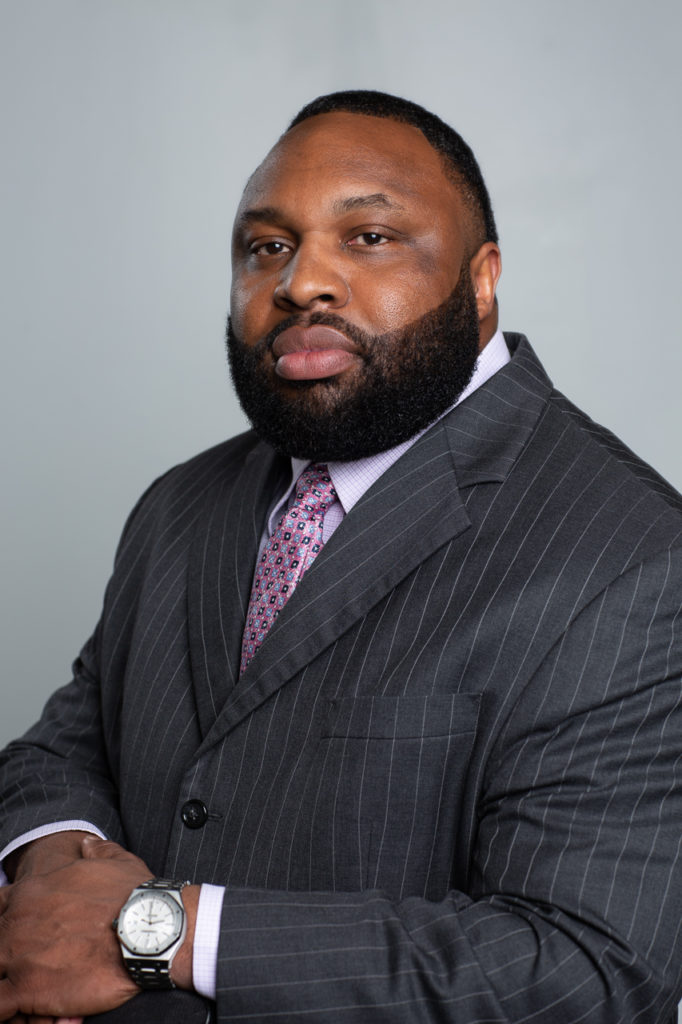Curtis Merriweather Jr. was at the bank when his phone buzzed with an email that he’d been nominated to attend a White House summit on minority government-contract opportunities.

“I read the letter and said, ‘Is this a joke?’” said Merriweather, a Case Western Reserve University student in the Doctor of Management (DM) program at the Weatherhead School of Management. “Read it again, saw the name, saw the letterhead, called my wife and said, ‘I don’t know if I’m being pranked.’”
He wasn’t.
A week later, an electronic letter arrived from President Donald Trump, inviting him for a White House celebration of black entrepreneurship during Black History Month immediately following the Feb. 27 summit.
“I still don’t know how I got nominated,” said Merriweather, whose Charleston, South Carolina, defense-contracting firm specializes in artificial intelligence, cyber and information technology, intelligence operations and language operations. “But I believe the DM program has uniquely prepared me to have a fruitful discussion regarding both entrepreneurship and innovation with senior executive federal leaders.”
Merriweather, who started the doctorate program in August, has done work for various federal “civilian” agencies, the Department of Defense and the intelligence community. He gladly accepted the White House invitation.
Attendees will meet with high-ranking federal agency representatives to discuss the expansion of contracting opportunities for minority-owned businesses and the creation of more mentorship programs for minority entrepreneurs to collaborate with the private sector.
Ashley Bell, the recently appointed White House policy advisor for entrepreneurship and innovation, identified Merriweather as “a game-changer in the entrepreneurial field” in a letter inviting him to the event.
“When they talk about entrepreneurship problems, the same code words come up—access to capital, comprehensive education, finding the right advisors and mentors and social capital —these top four or five tenets that seem to ring through no matter what kind of minority business expansion you’re talking about,” said Merriweather, who is originally from Augusta, Georgia. “But from a government-contracting standpoint, there are bigger challenges I’ve had personal experience with.”
In the Doctor of Management program, students apply research data to practical problems and find ways to improve them.
Merriweather is focusing on improving health-care delivery. Health information technology (IT) systems and electronic health records (EHR) were originally touted to improve care quality, empower patients and save money. More than 95% of eligible and critical-access hospitals have adopted such certified health IT systems. But research indicates that these systems are actually increasing costs and increasing medical errors—the third-leading cause of death in the United States.
As the first part of his study, Merriweather will interview employees in large and small hospitals nationally to better understand what professionals are experiencing in implementing IT health solutions.
“The research question Curtis is addressing,” said Kalle Lyytinen, the Iris S. Wolstein Professor of Management Design, chair and professor of design and innovation, and faculty director of the DM program, “seeks to determine how alternative sociotechnical solutions influence overall patient delivery outcomes and, more specifically, how different sociotechnical solutions impact misdiagnosis and related medical errors and consequent patient-delivery outcomes.”
For more information, contact Bill Lubinger at william.lubinger@case.edu.

